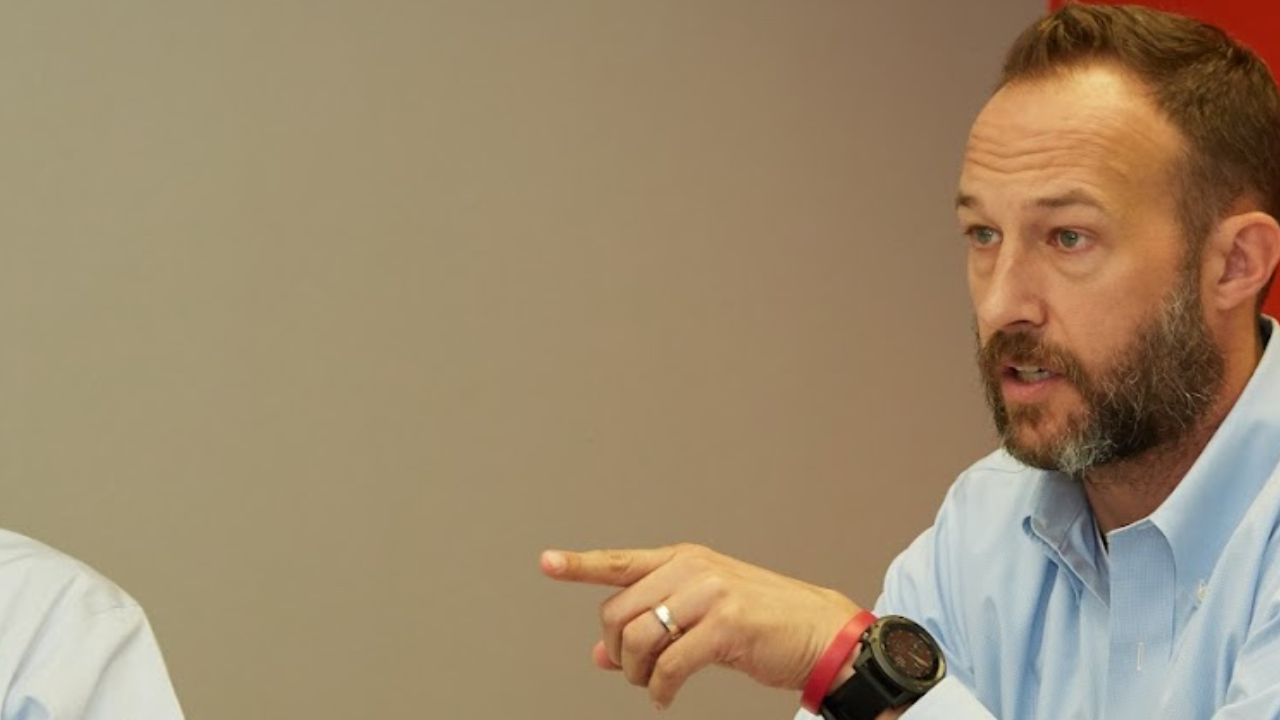Alcohol at Company Events
Jul 01, 2024
“You think you’re something special, College Boy? You think you’re better than me?”
I wanted to respond, but two things were holding me back.
First, I was being choked against the wall, and I was struggling to figure out the best way to protect myself from this workplace attack without punching or kicking. Second, it was an extremely emotional moment, and I was embarrassed to be on the verge of tears in front of my new coworkers at my first real job.
I had just started working with a big-name company and was excited to attend my first professional offsite with the leadership team and my fellow managers. The schedule included two days of classroom-style learning, great meals, and chances to connect. The offsite officially started with a night at the bar inside the country club where we were all staying.
My supervisor was there alongside others in my training group and the lead trainer. I had grown to really like these people during my first month on the job, especially my trainer. He was smart, hard-working, and emotionally in tune with the needs of the new hires. That was, of course, until he had a few tequila shots at the bar and then a switch flipped. He began using aggressive language and defending himself when no one was on the attack. Before long I was gasping for air and trying not to cry as this man I had looked up had slammed me against the wall while squeezing his hands around my throat.
After a few other managers wrestled him off me, I went to my hotel room early and laid in bed, wondering how my “professional” career was off to such a horrible start. I immediately hated my job and wanted to quit. The next morning, that man was sent home, and one of the executives stopped me in the hall to check on me. I tried to play it cool, but I was hiding my humiliation and hatred for the entire offsite. Just days later, the VP of Human Resources flew down from corporate and fired that man, much to my dismay. I understand why he lost his job, but that isn’t what I wanted to happen. I wished everything could go back to the way it was before the offsite.
Twenty-five years later, I’ve curated and led more than 30 dynamic company offsites, many of which have become legendary within those companies or industries. The intentionality with which we have approached offsites has become a pillar of great culture building. When an offsite can unify, renew, challenge, and propel a team forward, the entire group will collectively have a shared experience. A great offsite becomes a mark in time where we talk about an organization or a project before that moment and after because the event is so formative and critical to the ultimate success of the organization.
Are you wondering if we provide alcohol at these dynamic company events?
Yes. For the most part, alcohol has been served at some point during our multi-day offsites. But our approach to serving alcohol is dramatically different than what I experienced during my first job.
When orchestrated well, any alcohol we’ve provided is intentionally positioned as just an optional detail of the event and not the primary purpose. There is a big difference between an entire activity where the team meets for an open bar versus one where an activity is planned, and alcohol happens to be available. Many great offsites go a step further and connect the evening activity to the theme or the purpose of the offsite. Successful activities I’ve seen include Top Golf, competitive games at a bowling alley/arcade, a company-wide talent show, an interactive night at the zoo, professional sporting events, screening a relevant film, hosting your own film festival with creative submissions from the team, improv comedy, historic tours, trivia, a scavenger hunt, murder mystery theater, open mic poetry, and more.
What about people who don’t want to drink alcohol?
The less our activity is centered around alcohol and the more it is just an optional detail when present, the more comfortable an employee feels when he or she has no desire to have a drink.
Leaders can go further by providing a signature mocktail and advertising it at the bar to encourage comfort among those choosing not to drink. You can also work with your leaders and influencers to be aware that offering a Topo Chico or a mocktail when listing off the choices to employees as they arrive will help to normalize those who choose not to drink.
If at any time the language and the tone of the group switches and peer pressure is used to encourage drinking, your leaders and influencers should step in to lead by offering to join in a non-alcoholic drink and asking others to chill out on the pressure. Awareness for a leader is key in these times, so consider how much alcohol you can consume before your awareness level drops.
Early in my career, I decided to always own my role as a leader by limiting my alcohol consumption at company events and by avoiding the perception of unhinged drinking that comes with slamming beers, taking shots, and nagging others to drink more. If this commentary about my approach to drinking at work events triggers you, then I doubt your actual issue has anything to do with me.
Is a scheduled activity a guaranteed way to prevent unruly drunkenness at a company event?
Of course not. Human beings have free will.
However, I have seen firsthand the difference between drinking as part of an activity and drinking for the sake of drinking.
I think our role as leaders and event planners is to be hyper-intentional about the flow and the purpose of everything we create. Just opening the bar and saying go for it seems like a wasted chance to build a special moment for your team.
So, who do we blame?
Whose fault is it when a drunk employee at your company event makes unwanted advances at a coworker, uses language or racial slurs that can’t be ignored, or chokes the new hire up against the wall?
For starters, the employee in question is at fault. That is true.
But is there any culpability on the part of the company leadership? When a senior leader is slamming shots and high-fiving coworkers about it, what should the recent college graduate do or say as her new teammates start chanting for her to join in the next round? When the team is stumbling back to their rooms, and an employee is getting handsy, is there anything the leaders could have done to prevent this unwanted and unwarranted advance?
I don’t think there is a silver bullet answer to these questions, but I do think it is cowardice to act as if we, as leaders, have no role to play in the outcomes of the events we plan.



